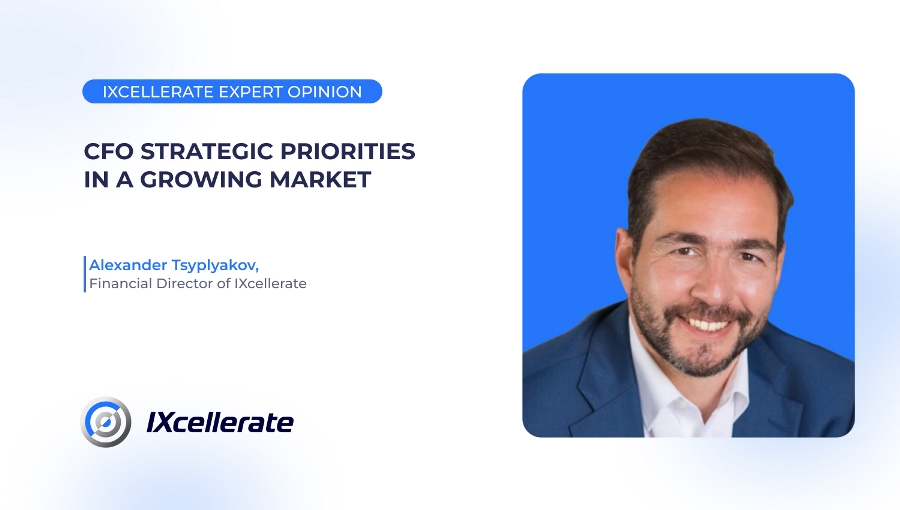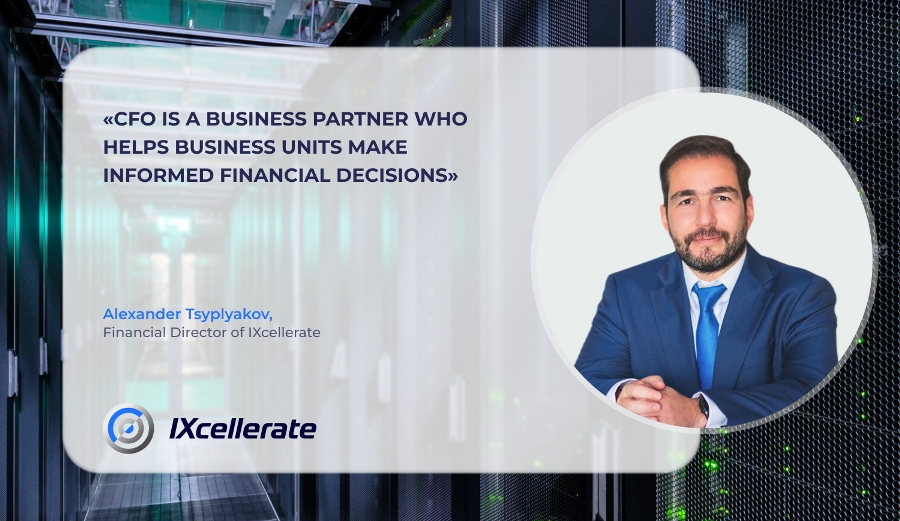
Who is a CFO and what are his functional responsibilities? What business priorities fall within the shared responsibility of the CFO and CEO of a company? What is it like to be the CFO of a high-tech, fast-growing data center company?
We discussed these and other topics with CFO (Chief Financial Officer) – financial director of IXcellerate, Alexander Tsyplyakov. Here are the insights we gained:
Being a CFO of a rapidly growing data center chain is both an exciting and challenging.
To illustrate, let’s imagine a situation: in an ambitious data center construction company, the technical department may want to launch as many data centers as possible, while the sales department aims to sell more colocation services. In this case, the CFO must act as a strategist who can align the team’s diverse goals to scale the company with the required growth rate and return on investment.
Analyzing the situation: last year, the demand for data center services in Moscow consistently exceeded supply, which made the data center market more of owners’ market rather than consumers. This year, the situation shifted towards parity as additional capacities were introduced by several competing data centers.
This example highlights that one of the main tasks of a CFO is to find and maintain the right balance in a company’s development. As long as the demand exists, we will continue to develop, but we will do it carefully and without the risk of losing control.
Financial well-being largely depends on the effective partnership between the CFO and CEO, who share responsibility for the strategic growth of the company, digital transformation, and business priorities such as:
- cost management;
- technological development;
- optimization of internal processes;
- workforce management;
- customer knowledge and satisfaction with the service/product.
Let’s briefly look at how these points work in practice.

Since the data center industry is an infrastructure business, the growth trajectory is directly linked to the introduction of new capacities and costs. The entire top management team of IXcellerate focuses on construction: from the design and facility commissioning to increasing the company’s investment attractiveness and recruitment of highly qualified specialists.
The CFO is actively involved in budget development and controls capital expenditures on equipment, infrastructure, energy consumption and operating expenses.
Our growth is closely tied to technology. Analysts estimate that by 2035, people will generate more than 2,000 zettabytes of data, most of which will be stored in data centers. This exponential progression provides significant growth opportunities for IXcellerate as we build quality facilities and offer colocation services that are in demand on the data center market.
Furthermore, we are constantly working on internal digitalization, which sets the company’s IT agenda and optimizes work tasks. Processes become streamlined, and the gathering of routine data is much faster if there is a transparency and and open dialogue between business divisions. For example, we, along with the finance team, have done a lot of work: we have become more efficient in collecting and structuring data needed for accounting, budgeting, and reporting (monthly, accounting, managerial, for shareholders, etc.).
The main KPIs in the data center industry are the revenue and EBITDA, as well as the NPS level – the client satisfaction index. It’s no secret that only a satisfied client is willing to pay for a product/service.
Speaking of the priority of customer orientation, it is worth noting that at IXcellerate, we have achieved great success in focusing on internal customers. We try to “break” the introversion and some traditionally developed isolation of our finance team, striving to listen to and understand our clients, their goals and desires, making a product that is needed both by the company itself and the end consumer.
In conclusion, the CFO can be seen as a business partner who helps business units make informed financial decisions so that their common goal (in our case, when all data centers are filled with clients) ultimately increases the value and profit of the company.